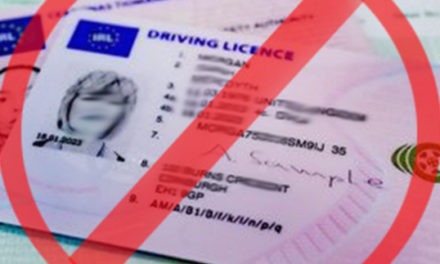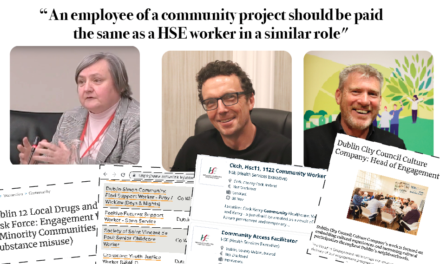As frustrations with JobPath are voiced throughout the country, reporter Ben Panter shares an inside look at his own experience.
There are some who have found that JobPath worked for them but, in spite of statistics that point to only low levels of complaints, the ‘labour activation’ programme seems to dissatisfy many. It has even been debated in the Dáil. However, nobody in that chamber had my first-hand experience.
Jon was ecstatic. The Community Employment (CE) scheme had offered him a role as a carer, enabling him to achieve his lifelong vocation after a period of unemployment. Days later, his tone had changed.
“Because I am with Turas Nua, I am not allowed to take the job,” he said.
I thought he was joking, but alas no. A place on a CE scheme is not a job.
Turas Nua is one of two companies that provide JobPath supports nationally and, as the overseer of national policy for the scheme later told me, “CE is not full-time sustainable employment, but it is a stepping stone back to work for those who have been out of the workforce for an extended period”.
Once activated onto the JobPath scheme, the principle goes, employment prospects should improve, negating the need for such initiatives.
It doesn’t work that way
Unfortunately, the JobPath programme can actively hinder prospects. According to figures from the Department of Social Protection (DSP) JobPath performance report of January 2017, people unemployed for one to two years found themselves less likely to find work in their first year on JobPath.
When I asked about these troubling findings, I was told by an official, “it’s drawn from a very small sample size – the report qualifies that.”
And yet I was soon made rudely aware that fewer employment prospects might in fact be a reality.
I was promised that JobPath would provide “a personal adviser who will provide individual support and assistance to help you find a sustainable full-time job”.
If by intensive they meant three sessions spread over six weeks, in which you are asked the sort of questions a probation officer would ask – about addiction, debt and family dynamics – then they were right.
An optimistic start
Early on, unaware of the experiences of Jon and many other people, I chose to throw myself in. I revised my CV and began trawling the websites for job opportunities.
Two weeks later, I was called to Ennis to attend a meeting where I was guided through a questionnaire. It probes for details such as your family situation and any addiction or debt problems you might have.
After an allotted 15 minutes, my time was up and I was re-booked for another meeting a fortnight later to complete the task that could have easily been completed online.
The slow progress rankled. I was used to working efficiently with the bright young ranks of future journalists in the University of Limerick newsroom.
‘I finally got the promise of career advice and a mock interview, just 26 weeks into the 52-week programme’
Journalism, I was advised by the then supervisor of the Ennis office, Roisin, was a “niche career”.
“That’s alright, I’m flexible,” I replied, keeping the bright side up. Surely a shiny new degree would get me something?
JobPath blocked opportunities
A JobBridge internship in a local community radio station seemed the ideal chance to polish my broadcasting skills, and the much maligned €50 extra per week would almost cover the transport up and down the coast of Clare.
“You won’t be able to apply,” the station manager told me bluntly. “People on JobPath cannot avail of the scheme. We had the same problem with our other candidate.”
Not one to be put off, I secured an interview for a job as a graphic designer with a multinational in Shannon.
The application process had been challenging, involving phone screenings and online tests. This was a valuable opportunity. Taking ‘ownership’ – to borrow from the list of HR buzzwords employed by the programme – I asked Turas Nua for a mock interview.
The appointment was made, but my advisor failed to show up. Another day lost coming and going for nothing.
I flunked the interview. I know that was on me, but still.
Actively hurting
Winter was in full swing, I was living in a seasonal town with next to no transport and local employment was non-existent.
I needed transport, so I broadened my search for paid work, looking beyond journalism.
Fortunately, I had a decade worth of experience driving heavy machinery on building sites and I heard of an opportunity in construction. The pay was good and I would soon be out of the mire on those wages.
There was one barrier: the price of my Safe Pass, manual handling and machine tickets totalled €450. A small investment that would be paid in weeks if I was on a salary, but on social welfare would take months to save.
A phone call to O’Dwyers Safety Services in Limerick seemed to bring forth good news.
“The government will fund your machine ticket if you have been claiming benefits [including Back to Education Allowance] for the last 12 months,” he told me, which was true. Then the catch: “…Unless you are on JobPath,” he added.
It was no longer up for debate. The scheme tasked with getting me back to work was actively hurting me. I was frustrated, confused, and aware that depression was beginning to sink its claws into me.
‘I could have been a poster boy’
To get back into the workforce I needed to get out of JobPath. I contacted Ann Monaghan in the DSP.
“We do not facilitate a customer to move from one activation support to another,” she said. “This is for a number of reasons, one of which is to ensure that the customer derives the maximum benefit from the support they are with.”
“What can I do?” I asked.
“If you do not find a full-time sustainable job at the end of your 52 weeks with JobPath, you will return to the Intreo activation service, and CE remains an option which you can discuss with your Intreo case officer,” she replied.
In other words, wait it out, which was the course that Jon had decided to take.
“I told Turas Nua that I will do what they need me to do and no more,” he told me. It was a waste of his time, his social welfare payments and the resources funnelled to HR professionals in light and airy offices.
I furnished Roisin with my experiences, my findings and the work I had been doing behind the scenes, making sure to inform her of my correspondence with Ann. I finally got the promise of career advice and a mock interview, just 26 weeks into the 52-week programme.
Potentially, I could have been a poster boy for their organisation. Someone who had committed to improving his career prospects and was flexible and keen to work.
In spite of my experiences, I will remain so, handicapped though I have been in my attempts at a new journey with Turas Nua.





